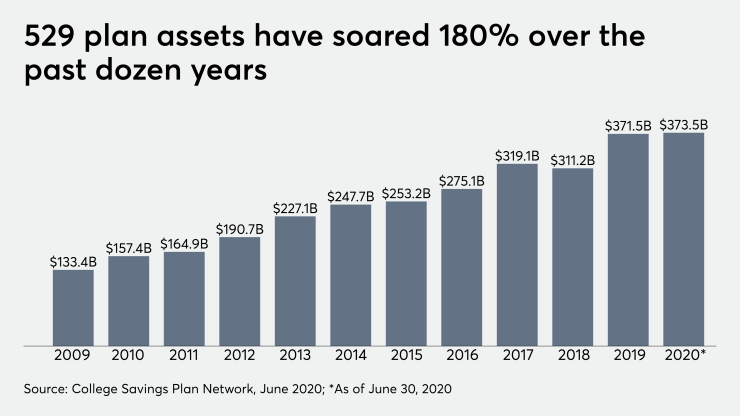A FINRA compliance program that
In a far cry from the initial set of
The 17 other firms resolved their cases through informal disciplinary actions called cautionary action letters. The other firms also paid restitution, but they won’t have to report the cases on BrokerCheck and FINRA doesn’t disclose their identities. The regulator alleges the 19 firms’ supervisory failures caused their 529 plan clients to invest in higher-cost share classes.
“The purpose of the 529 initiative is to remedy potential supervisory and suitability violations related to 529 plan share-class recommendations, and to return money to harmed investors as quickly and efficiently as possible,” Jessica Hopper, Head of FINRA’s Department of Enforcement, said in a statement.
The regulator is “encouraged by the level of cooperation of member firms that self-reported” and anticipates it will resolve the remaining cases in 2021, Hopper added. FINRA credited Morgan Stanley and B. Riley, a Memphis, Tenn.-based firm with 285 registered representatives, with “extraordinary cooperation” and didn’t assess any fines on top of the restitution.
Under its settlement, Morgan Stanley agreed to pay $1.7 million across 2,293 accounts to clients “who incurred excess fees from Class C share purchases” between January 2013 and June 2018,
“We are pleased to have resolved this matter,” Morgan Stanley spokeswoman Susan Siering said in an emailed statement.
B. Riley will pay $252,740 after investigators said the firm “was unable to conduct a reasonable supervisory review of the activity” in 3,119 accounts, including 620 with savings plan beneficiaries under 12 years old that held at least $4.6 million in Class C shares,
The fim “voluntarily self-reported its findings, immediately took corrective actions and proposed a plan to efficiently remediate the small number of potentially affected accounts,” spokeswoman Jo Anne McCusker said in an email. “Upholding trust and confidence among our valued clients remain our utmost priority, and BRWM is committed to continued transparency.”
Class C shares waive the front-end sales charges imposed by Class A shares, but they usually have higher annual fees. The regulator included an example in the settlements showing the potential harm to longer-term beneficiaries such as children saving for college over an 18-year span: an initial $10,000 investment in Class C shares would cost $1,300 more than Class A shares and be worth $1,500 less by the end of the period.







